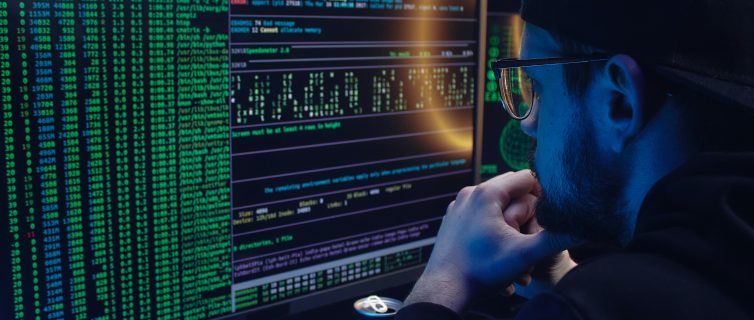Are you part of the majority neglecting to protect themselves from cyber threats using a VPN?

In this article we will discuss some of the ways in which a VPN can help keep you safe online (including but not limited to):
- Avoiding identity theft
- Protecting your personal information, and browsing activity
- Forgoing cookies, and trackers that lead to aggressive reargetting
According to a survey by OnePulse, approximately 25% of their respondents are currently utilizing a VPN in order to protect their information, and online activity. That means that 75% of internet users are leaving themselves exposed to a wide range of cyber crimes.
Avoiding identity theft
Identity theft happens more often than you think. According to Experian, nearly 1 in 20 Americans experience some form of online identity theft. These include:
- The unauthorized usage of your credit card details, and/or of other financial data (such as bank information)
- Cybercriminals that open bank accounts under your name in order to carry out illicit activities such as money laundering, and tax evasion
- Taking loans or other lines of credit out under your name
- Personal identification fraud such as social security cards, passports, and drivers licenses in order to assume your identity for employment, legal or government filing purposes
How VPNs help you avoid identity theft
Typically cybercriminals can access your personal identifying information when you access a website and input this sensitive data. A good example of this is typing in your credit card and/or passport details into an email, and sending it over to a legitimate vendor in order to complete a transaction such as a flight ticket purchase. When this information is sent it can be intercepted, copied, and used maliciously.
When using a VPN you enjoy data ‘encryption’ as well as ‘tunneling’, techniques that give your data a second skin so that these actors cannot read the contents of your message. It also adds a sort of digital key that only you, and the requested service have access to, ensuring zero data leaks.
Protecting your personal information, and browsing activity
Browsing activity may include what type of movies you enjoy watching, which content you watch on your streaming on-demand platform, as well as which groups you are active in on social media.
Personal information may include your date of birth, place of residence, and your children’s names and which schools they attend.
These can be used in a variety of malicious ways. For example, social media activity can be used to your detriment especially when you are politically active in a not-so democratic environment.
How VPNs help you protect your personal information
VPNs can help you access, and use an IP address located in a different country that does not have the same restrictions on freedom of expression as where you are currently located. One can create an avatar, access local groups from an IP located in San Francisco, for example, and thus freely express his or herself without putting your person at risk.
Forgoing cookies, and trackers that lead to aggressive retargetting
Cookies are essentially small ‘data particles’ that web servers generate while you are browsing a site. Cookies are typically placed on a user’s device in order to track browsing activities such as:
- Previously visited pages
- Items added to a previous marketplace basket during our last session
While many of these common applications of cookies are actually positive, and can improve our web user experience, others can be a nuisance. Cookies, and more commonly ‘web trackers’ that run as scripts when a page loads (usually unbeknowingly to the average user). The latter is typically used for:
- Improving user experience
- Digital marketing campaigns (i.e. targeting / retargeting)
Some commonly collected data points include:
- User location vis-a-vis your IP address
- Cross-site browsing activity so that a fuller customer profile can be built around your hobbies, interests, and shopping habits
How VPNs help you avoid having your online activity tracked
A VPN empowers you to use a different IP address for every web session you initialize that is anonymized so it does not disclose your real identity, and if needed one can change IP addresses multiple activities when accessing sites where you want to avoid ‘data commingling’.
The bottom line
VPNs are an extremely powerful tool that can help you start increasing your level of security, and browsing/information privacy online. As ¾ of the population is currently vulnerable, it would be wise to start using a VPN at your earliest convenience, in order to avoid uncomfortable, and in some cases irreversible social, political, and financial damage.
